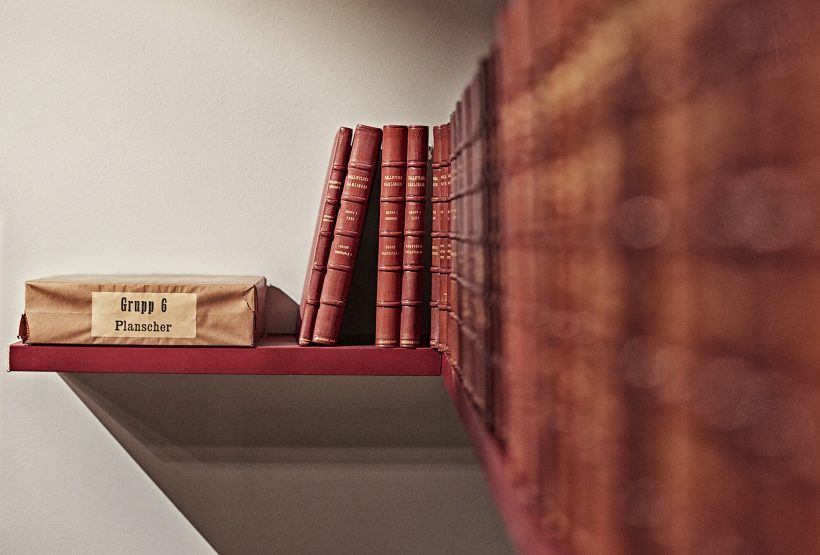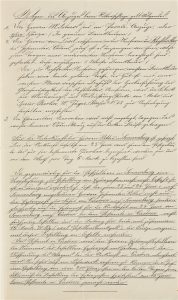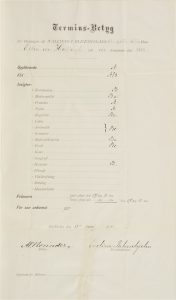
A historic collection consisting of ephemeral things is especially important to safeguard for the future. The Hallwyl archive is such a collection. It gives fascinating insights into a wealthy household of the last turn of the century, but it contains all sorts of things, from love letters that have been read many, many times to shop receipts and tens of thousands of copied letters on diaphanous paper.


The digitization of the archive started partly to give access to its content, and partly to preserve the material. The limited, albeit large, number of objects made it possible for the direction to decide that it should be made under the umbrella of a project. In hindsight I think that it would have been better to include it in the ordinary line of work.
Even if the archive is a unit with clear limits, and it is possible to say when all of it has been digitized, the end product cannot be considered the end goal, just as the individual pieces of paper cannot be considered as meaningful in themselves. The pieces of paper need to contain meaningful information, and they need to be related to people – then and now. The end-product – total digitization – is of no importance unless we gather experiences that will benefit us, and others, in a longer perspective. And in order to do this, we need people. People who remain in organisation once one task is finished and the next is awaiting.
In the current situation, in the early summer of 2020, everything points to huge changes in the museum world during the coming years, not the least in financial terms. This will of course affect the digitization of the Hallwyl archive. Is it Corona related? Yes, but the contamination is not physical, but mental.

Wilhelmina spent a lot of money on cataloguing her collections.
Leaders in all countries have, since the beginning of the year, competed to appear determined and executive, with more or less interest in the feelings of their citizens. Draconic measures impress other leaders, and the journalists as well, but those who make decisions against something, usually make the wrong decisions. So now we are in a situation where nobody dares to admit their mistakes or their insecurities.
I want to see heroic, rather than draconic, measures, measures that, through their courage aim to protect the future by preserving the most ephemeral thing of all – humans.